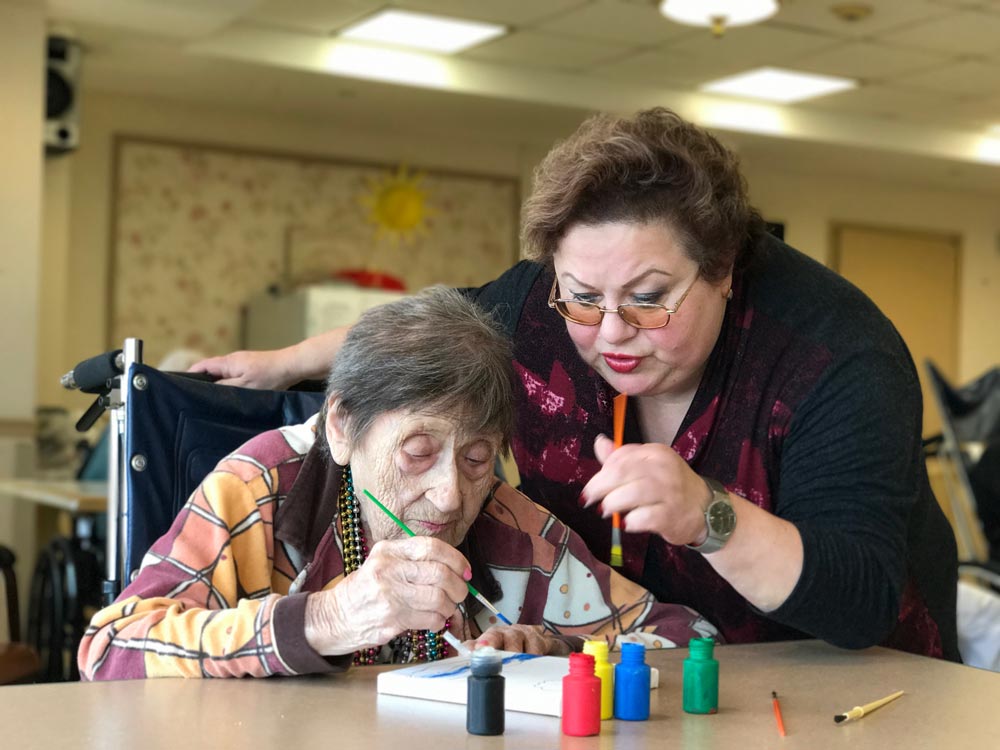Customized Dementia Care Charlotte: Comprehending Your Loved One's Unique Demands
Customized Dementia Care Charlotte: Comprehending Your Loved One's Unique Demands
Blog Article
Just How to Give Purposeful and Personalized Dementia Care
The arrangement of customized and meaningful mental deterioration treatment calls for a nuanced understanding of each individual's distinct history and choices. Care methods need to be tailored to involve the person in methods that reverberate with their past experiences, therefore promoting psychological links and enhancing overall health.
Recognizing Mental Deterioration Individuality

Care providers must evaluate cognitive capacities, emotions, and behavioral patterns to produce individualized treatment plans. This might include adjusting communication designs, utilizing familiar routines, and utilizing meaningful activities that resonate with the person's previous experiences. For circumstances, engaging a person with an enthusiasm for music through musical tasks might evoke positive memories and enhance psychological health.
Additionally, understanding individuality fosters a compassionate approach that appreciates the self-respect and autonomy of those dealing with mental deterioration. It encourages caregivers to listen proactively, observe behavioral hints, and continue to be versatile in their caregiving strategies (dementia care charlotte). By prioritizing individuality, caretakers can not just boost the lifestyle for those with dementia but likewise build a much more profound understanding of their distinct perspectives, ultimately leading to much more efficient and compassionate treatment
Structure Depend On and Relationship
Establishing count on and connection is fundamental in dementia treatment, as it produces a risk-free and helpful setting for individuals influenced by the problem. Building these links needs constant, compassionate interactions that focus on the requirements and feelings of the person. Caretakers need to approach communications with empathy, recognizing the distinct obstacles encountered by those with dementia, consisting of amnesia, confusion, and psychological distress.
Caregivers need to use clear, basic language and non-verbal cues to communicate understanding and support. Energetic paying attention shows regard and recognition, enabling individuals to express themselves without worry of judgment.
Experience with everyday tasks and caretakers advertises a sense of stability, making it possible for people to really feel more at convenience. By doing so, caregivers reinforce the individual's identification, advertising self-respect and regard, inevitably leading to more powerful, a lot more purposeful connections in the context of mental deterioration treatment.
Tailoring Tasks and Interaction
Engaging individuals with dementia with customized activities can dramatically enhance their top quality of life and cultivate a much deeper link between caretakers and those in their care. Customization is vital, as it acknowledges the unique histories, passions, and capacities of each individual. Tasks ought to be developed to boost cognitive functions, advertise physical activity, and motivate social communication, all while continuing to be delightful and fulfilling.
To tailor tasks efficiently, it is critical to assess the person's choices and cognitive abilities. For example, some may locate joy in gardening, while others may value music or art. Straightforward, acquainted jobs can stimulate favorable memories and provide a feeling of accomplishment. In addition, incorporating elements of regimen can use comfort and stability, permitting individuals to engage with tasks much more with confidence.
Caregivers can boost engagement by participating alongside the individuals, cultivating a helpful and interactive dig this setting. It is also important to continue to be adaptive and adaptable, readjusting activities as needed based upon the individual's power levels and state of mind. Eventually, meaningful involvement with customized activities not only boosts people with dementia yet additionally enhances the caretaker relationship, promoting mutual satisfaction and understanding.
Effective Interaction Strategies
Reliable interaction is crucial in mental deterioration care, as it cultivates a sense of connection and understanding in between caretakers and individuals experiencing cognitive decrease. Using efficient communication methods can significantly improve the high quality of interactions and lower disappointment for both parties.
To start with, using basic, clear language is important. Acquainted words and short sentences assist people understand and react better. In addition, maintaining a tranquility and favorable tone can develop a reassuring setting, which is crucial for individuals that may feel overwhelmed or distressed.
Non-verbal communication plays a significant duty. Caretakers ought to take note of body language, facial expressions, and gestures, as these signs can often convey even more than words - charlotte care home. Establishing eye contact and utilizing mild touch can additionally communicate and enhance links compassion
Energetic listening is another key component. Caretakers need to be alert, permitting individuals to share themselves totally, also if their speech is fragmented or unclear. This reveals regard and encourages a lot more open interaction.
Finally, validating feelings and experiences is important. Recognizing feelings, no matter their basis in reality, can supply convenience and strengthen the caregiver-individual relationship, advertising a more supportive atmosphere.
Supporting Family Members Involvement
Household participation plays a substantial duty in the general care and assistance of people with dementia. Engaging relative creates a joint setting that enhances the high quality of care, cultivates emotional connections, and makes certain that the one-of-a-kind requirements of the person are satisfied. Member of the family typically have invaluable insights right into the individual's background, preferences, and actions, which can be important in establishing individualized treatment techniques.

Additionally, member of the family can be urged to join everyday care activities, such as participating in meaningful discussions or helping with acquainted regimens. This not only assists receive the person's sense of identity but also reinforces familial bonds. Ultimately, by fostering an inclusive method that values household contributions, care suppliers can improve the general experience for both individuals with dementia and their loved ones.
Verdict
Finally, supplying purposeful and individualized mental deterioration treatment requires a comprehensive understanding of each person's one-of-a-kind history and preferences. Establishing trust and connection through thoughtful interactions is vital for developing a risk-free setting. Tailoring tasks to reverberate with personal passions boosts emotional health and promotes dignity. Effective communication strategies further sustain this process, while actively including relative enriches the caregiving experience and cultivates deeper connections. Collectively, these methods add to improved top quality of life for individuals with mental deterioration.
The provision of significant and customized dementia care requires a nuanced understanding of each person's one-of-a-kind history browse around these guys and preferences. By doing so, caretakers enhance the person's identity, advertising self-respect and respect, eventually leading to stronger, extra purposeful partnerships in the context of dementia treatment.
Involving individuals with dementia with customized activities can dramatically enhance their quality of life and cultivate a deeper link in between caretakers and those in their care.Family members involvement plays a significant function in the general care and support of people with dementia. Eventually, by cultivating an inclusive strategy that values household payments, treatment suppliers can boost the general experience for both people with mental deterioration and their loved ones.
Report this page